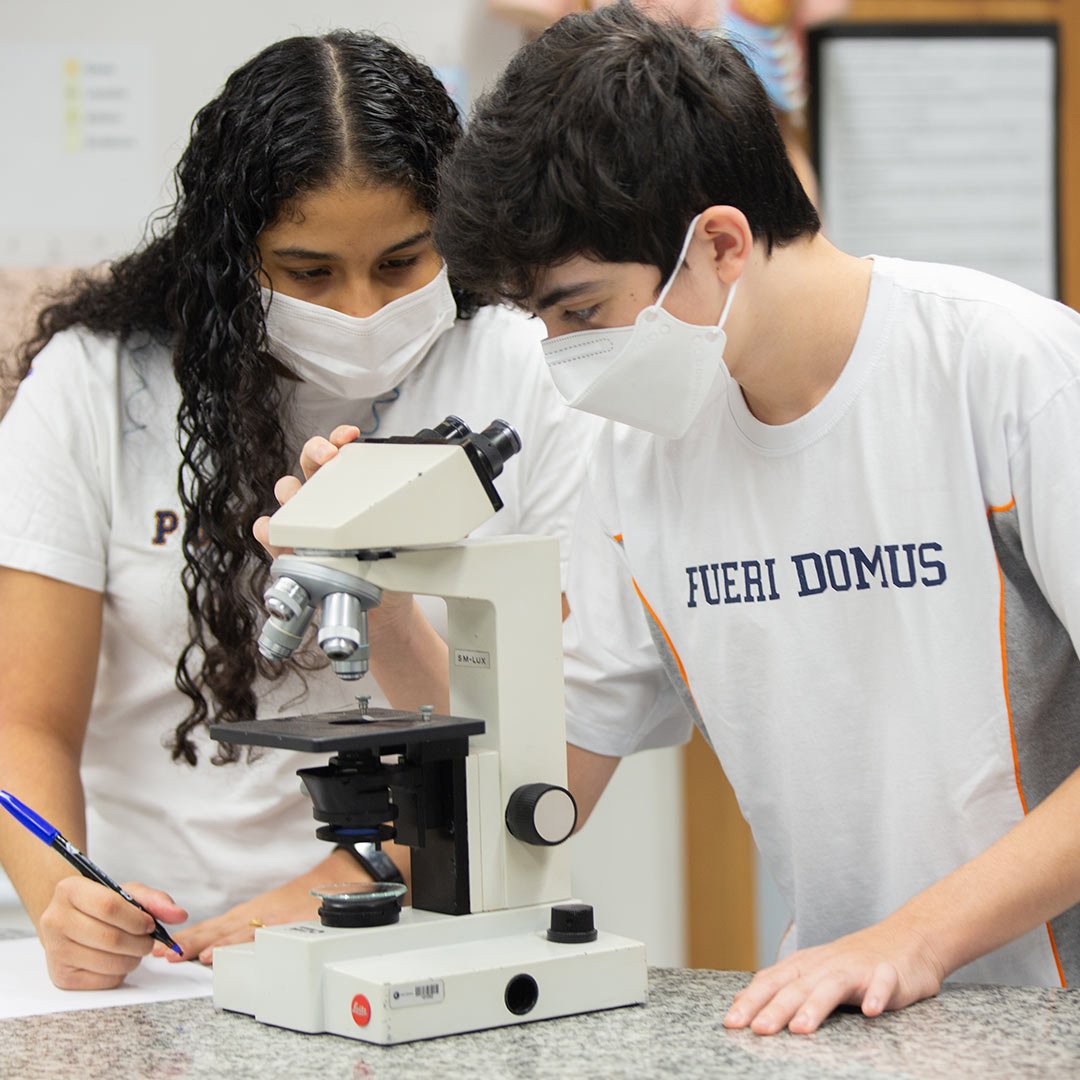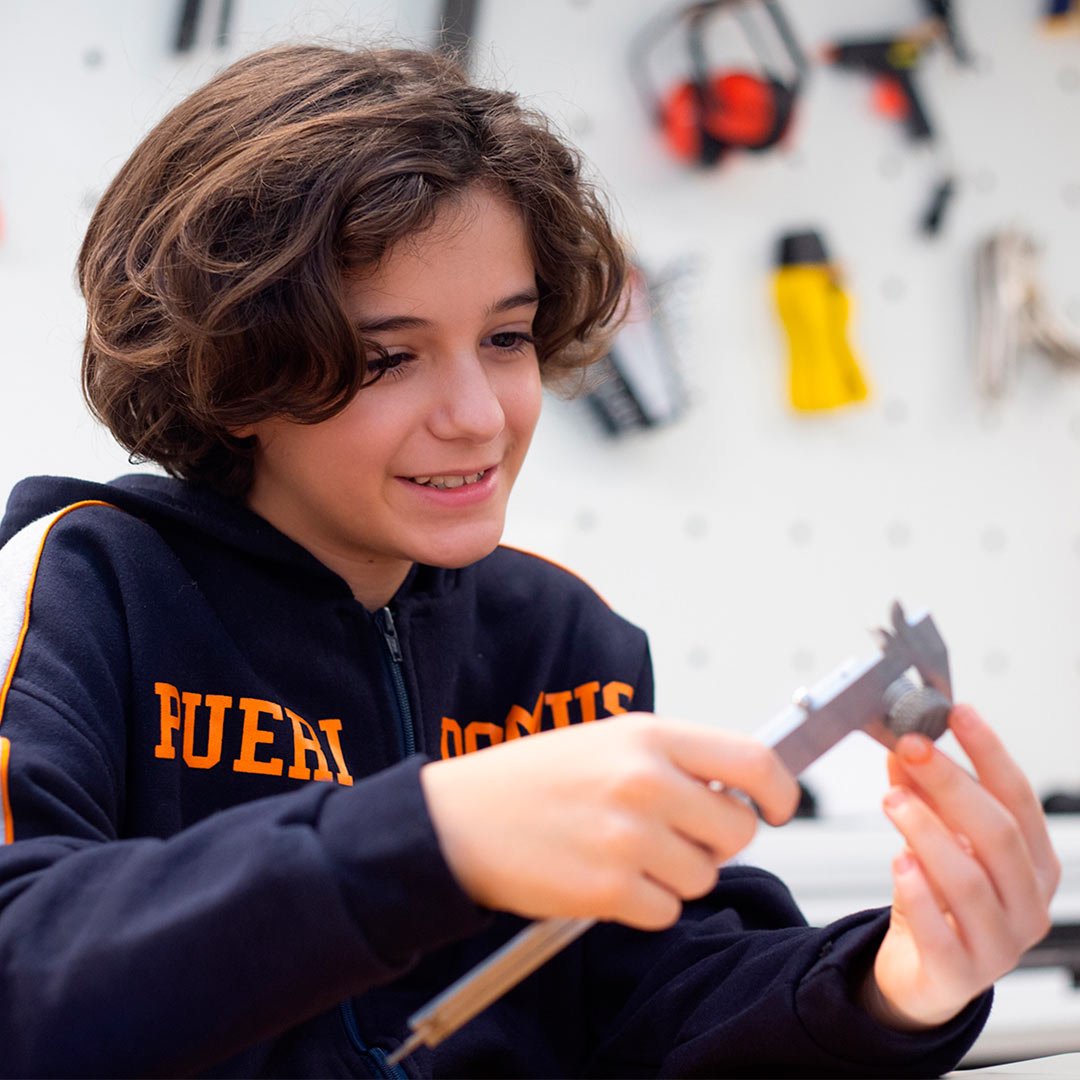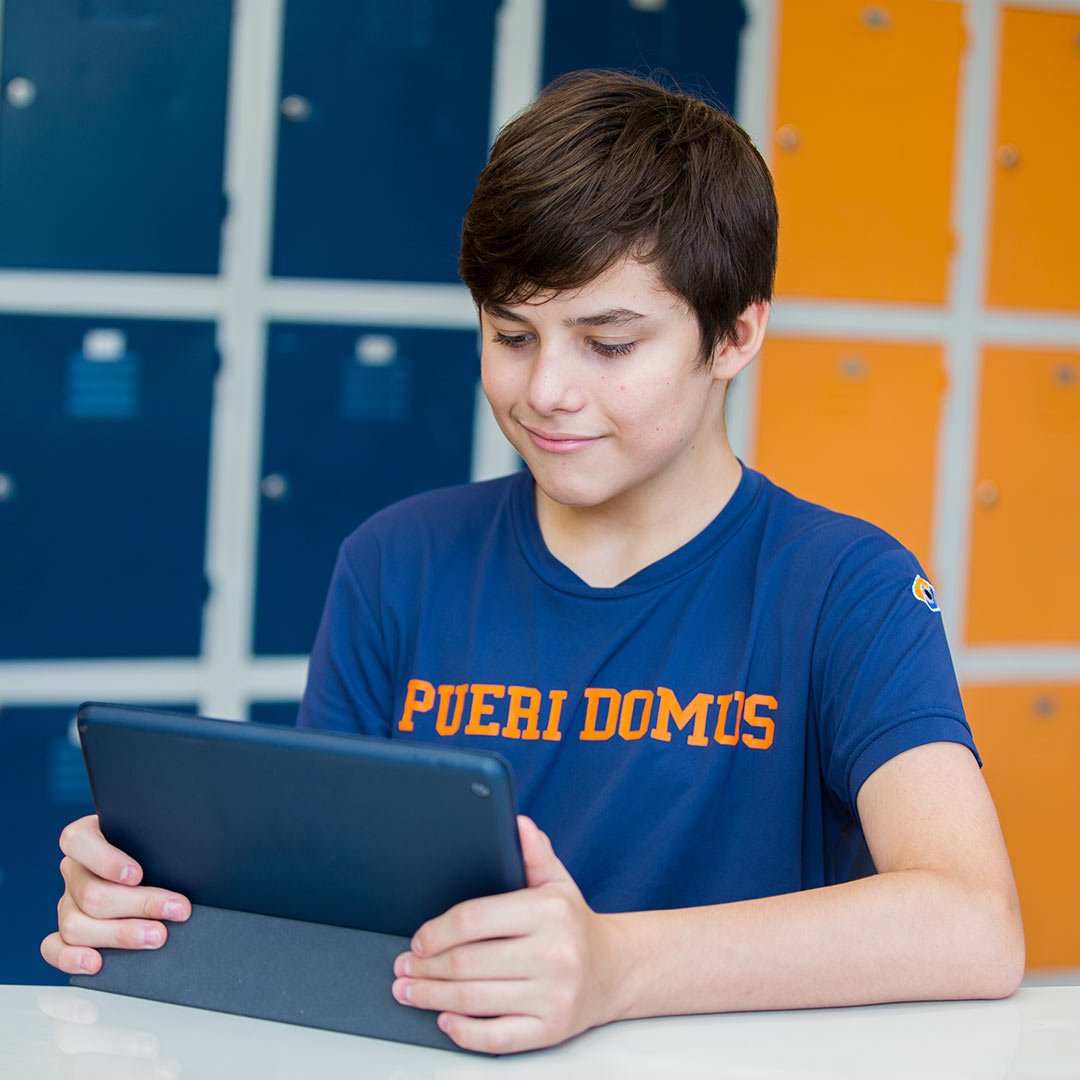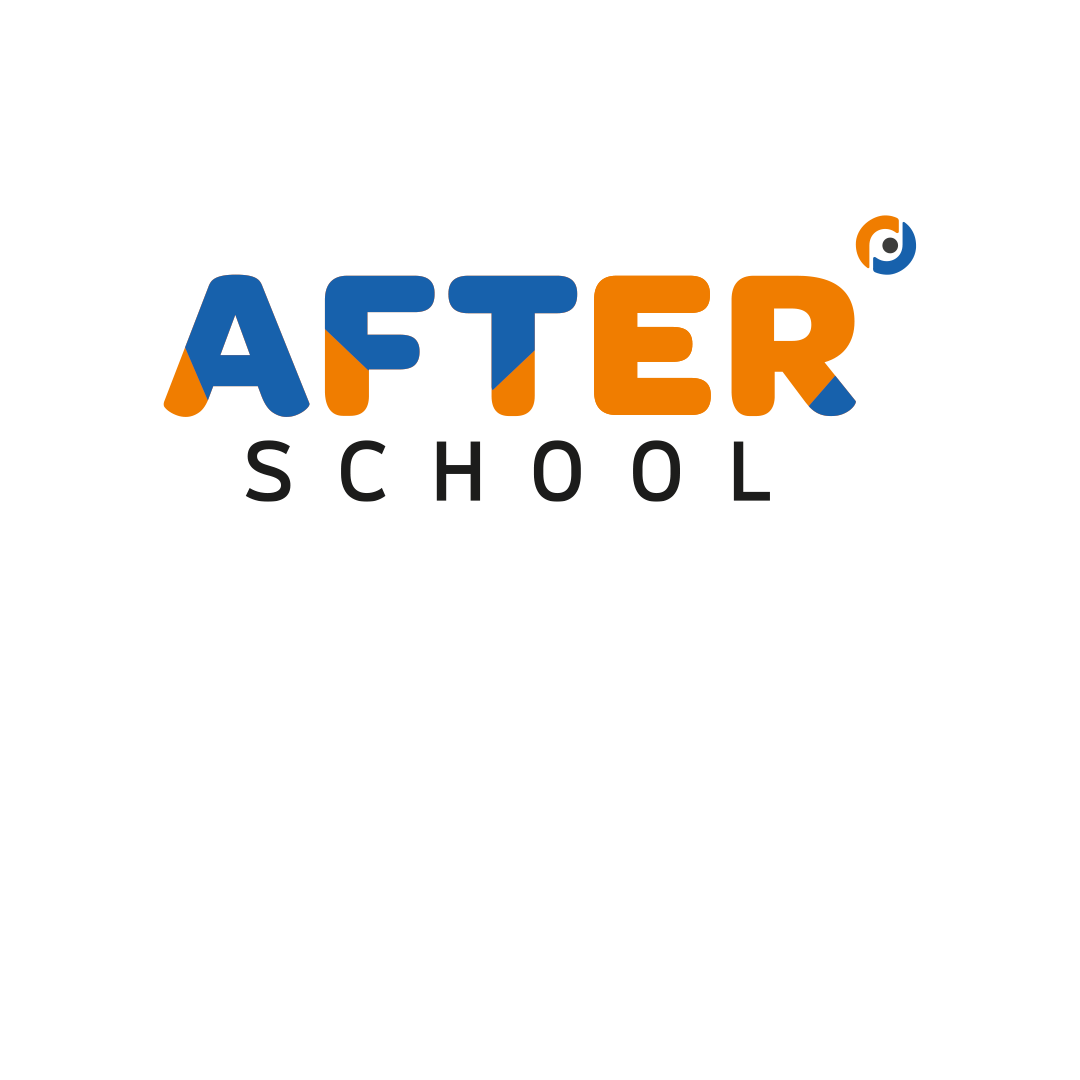Dual
Diploma

The distinctive bilingual education offered at Pueri Domus expands students’ opportunities to take part in international academic programs. One of them is the IB* (International Baccalaureate), based on the best educational practices worldwide and recognized by universities in 139 countries.
The emphasis placed on bilingual education at Pueri Domus aims to enhance students’ intellectual knowledge and increase their autonomy in the world around them, without neglecting the set of skills and abilities required by the Brazilian curriculum.
Thanks to this education our students have won medals at Brazilian academic competitions such as Mathematics, Robotics and Biology Olympiads and in simulations of international forums like Forum FAAP, besides enjoying opportunities for admission to the best universities in Brazil and abroad.











